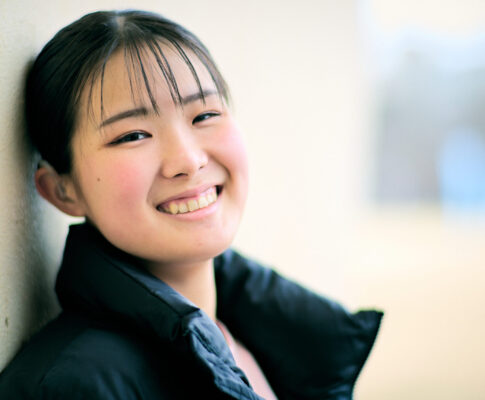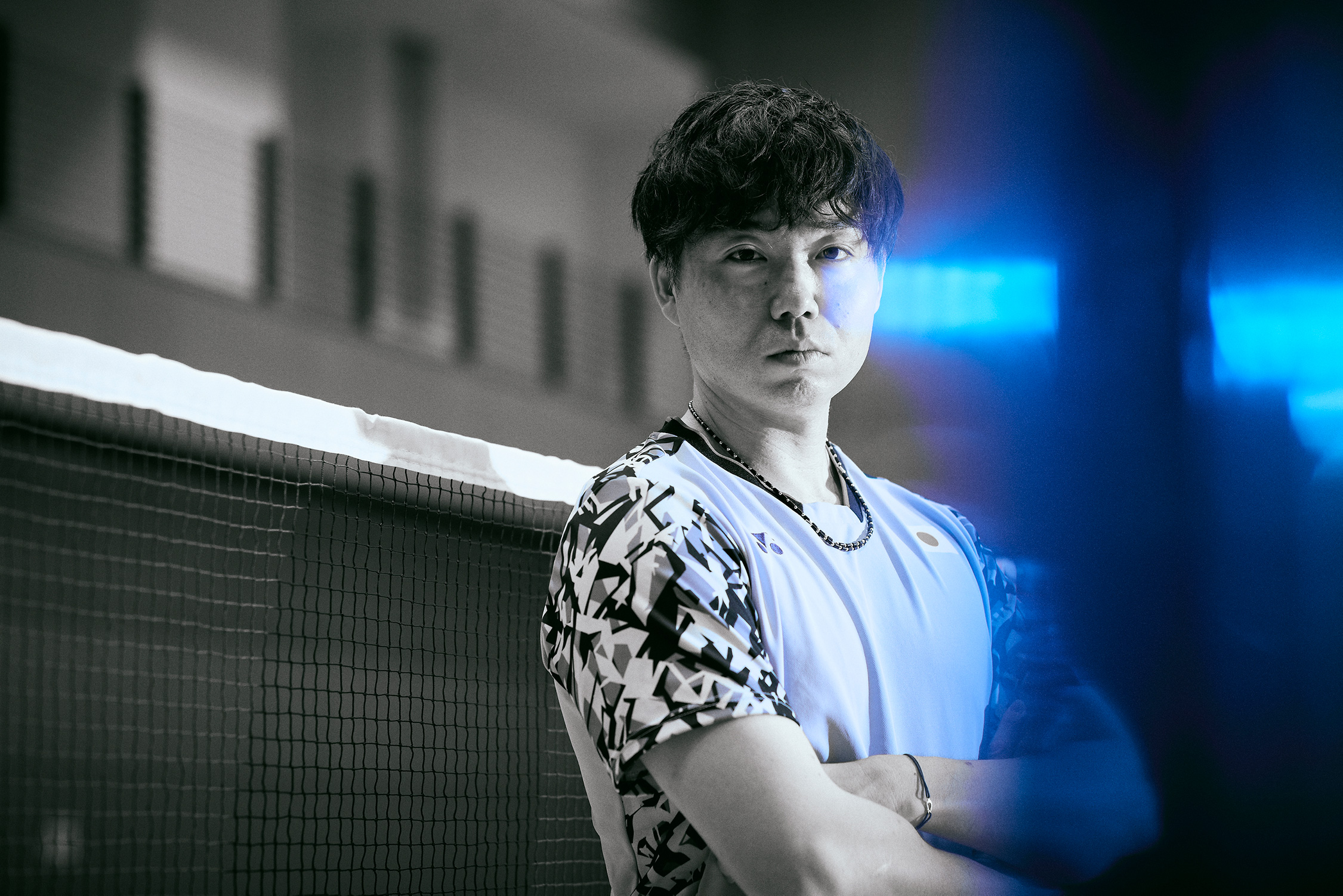
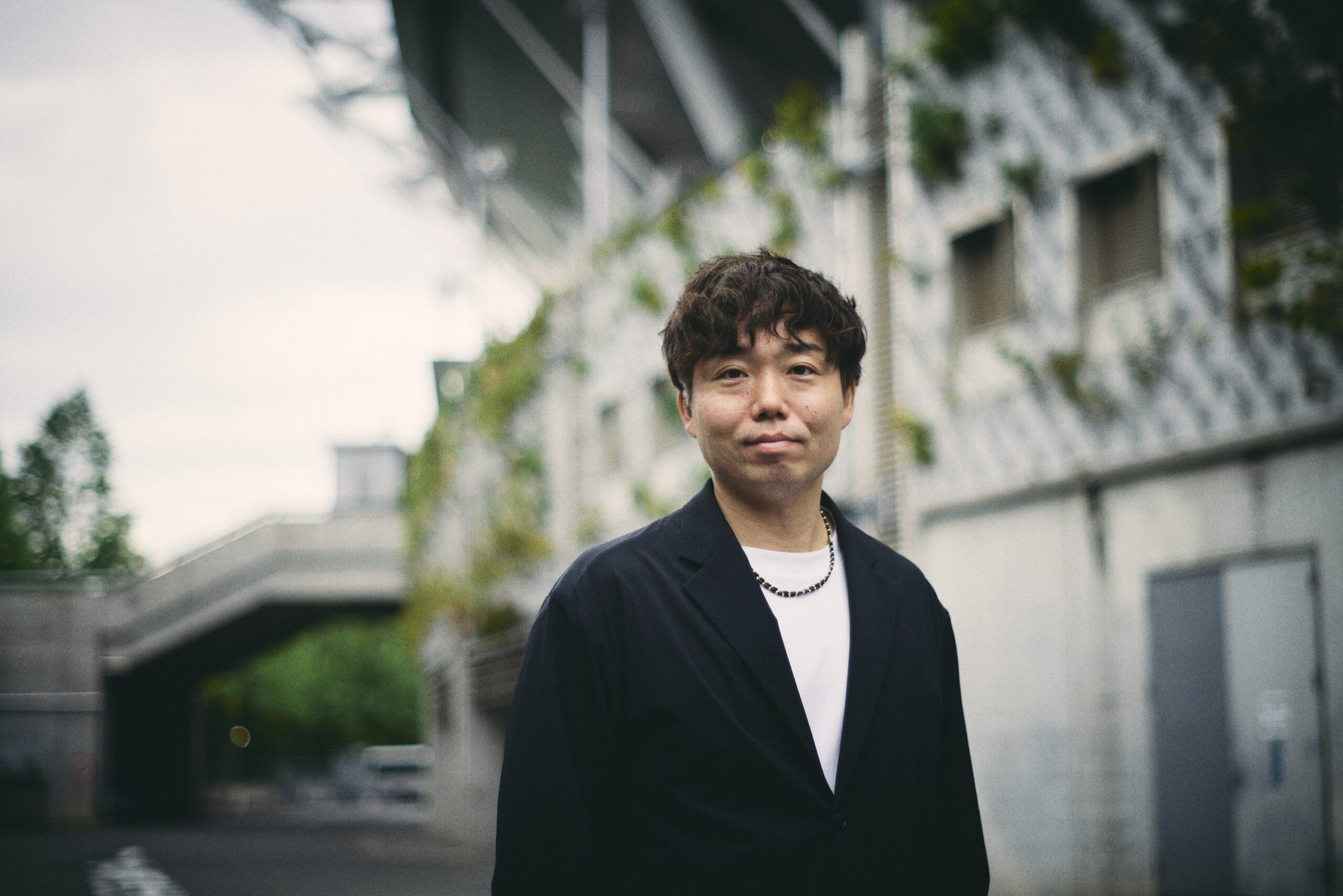
Masaaki Numakura
Born in Hokkaido in 1985.
After graduating from Tsukuba College of Technology, belongs to Trend Micro Incorporated. While working as an athlete, he is currently studying master’s course at Graduate School of Technology and Science, Division of Industrial Technology at Tsukuba College of Technology.
He won silver medal for the team competition at the Caxias do Sul 2022 and advanced to the semi-final in the Men’s Doubles, but he had to withdraw due to spread of the corona virus in the Japanese team.
He has been the leader of Japan Deaf Badminton for many years and has created a lot of history. As a culmination of what he has been aiming for all these years, he is aiming for gold at the Tokyo 2025 Deaflympics.
A broken heart led him to start to practice seriously
――How did you start playing badminton?
There was only badminton club at my school for the deaf. There was a rule that we had to belong to a club, so that’s how I started badminton. I had played badminton when I was a kid, but it was the first time to play as a sport and not as hobby.
――What do you enjoy about in badminton?
I was playing badminton with dislike for about half a year. I didn’t like to do work out training such as footwork or running as it was boring and tough・・・But as I continued playing, I can now do things that I couldn’t do before. I began to enjoy badminton by building up those experiences.
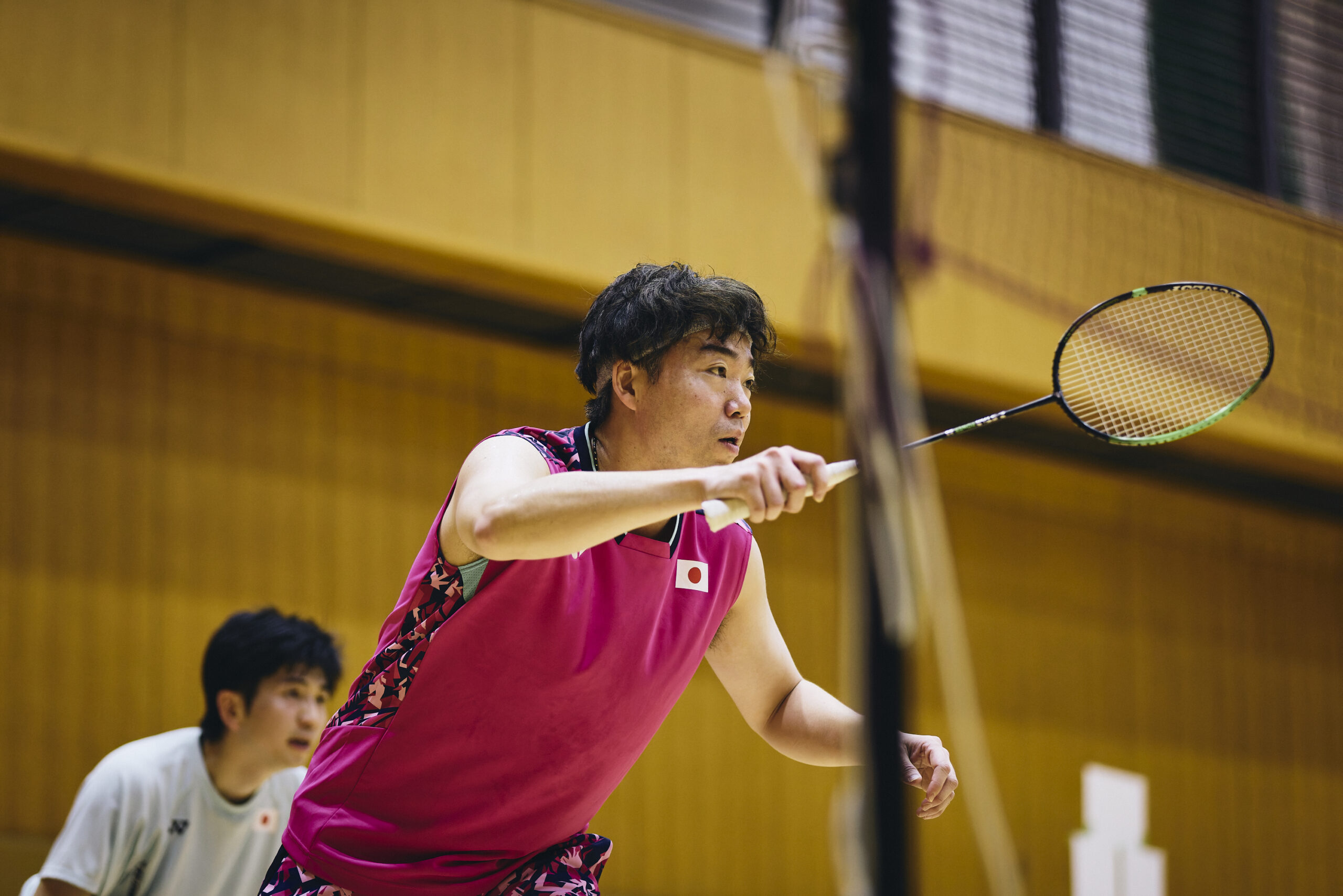
but now it is part of my life.
――When was your first official match?
There was a rookie match in winter when I was first year of Junior High School. I think that was my first official match. Although I lost right away. Actually I started to practice seriously after entering high school. I think I began to win from there.
――What made you start winning?
I’m ashamed to say, but I had a broken heart. I started to concentrate myself on badminton “to become stronger”. She was my first girlfriend who I have been going out during junior high school, but we both got busy with our school life after entering high school, and ended up getting dumped. But I think negative feelings will last longer to motivate myself so now that I think about it, it was a good experience.
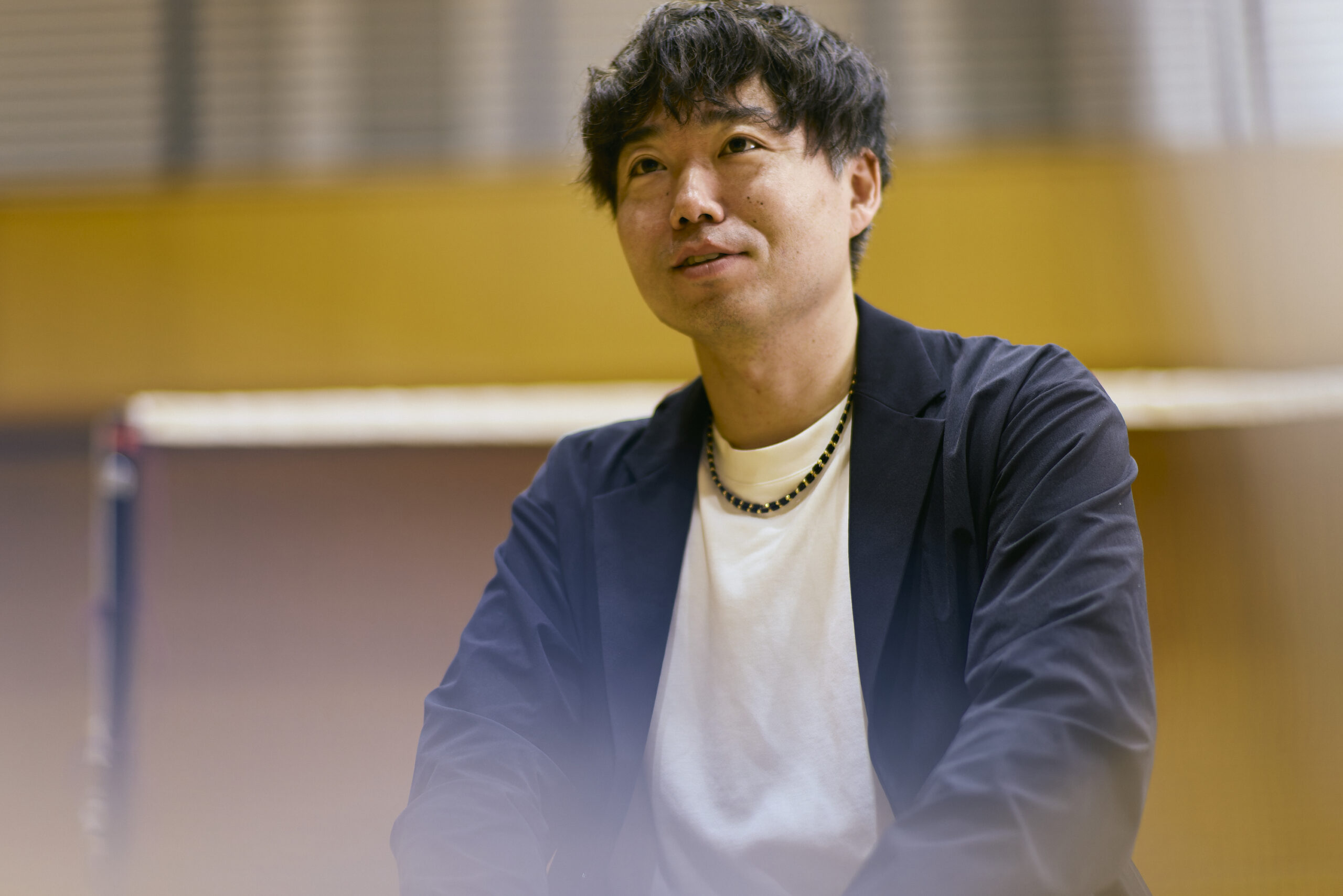
It was actually an unexpected heartbroken experience!?
When I challenged my wife…
――Do you have a playing style that you are good at?
If I had to choose one, I am a person who wants to push with power, so take on a low flying fight, and when I get a nice ball, I push with power.
――Is that your style from long ago?
It’s my style from an adult. I entered Tsukuba College of Technology, but joined the badminton club at Tsukuba University which is in the neighborhood. That was when I suffered my first setback. The level was completely different from before, and I couldn’t keep up at all. There were many strong athletes in the badminton club at Tsukuba University, as the club was aiming to win the intercollegiate championship. I got in the top 16 in Hokkaido, I could not stand a chance against them. After a while I kept a distance from badminton for about 10 years. When I was 29, I started to play badminton again after meeting my wife. My wife is a junior at my university, but I have heard how strong she was at badminton. That’s when I tried to challenge her, but sadly I lost. I was disappointed and returned to badminton after feeling “I can do it”.
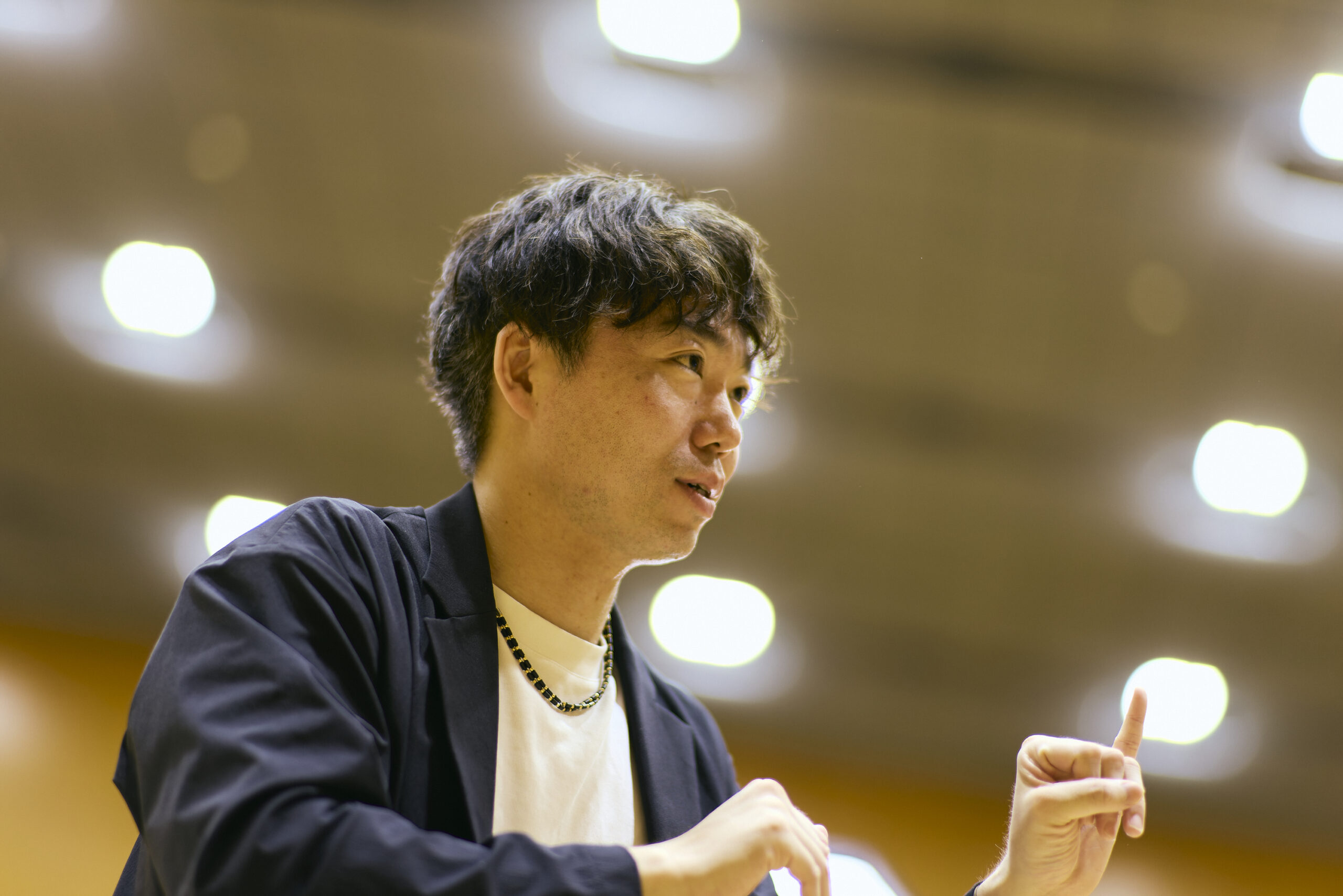
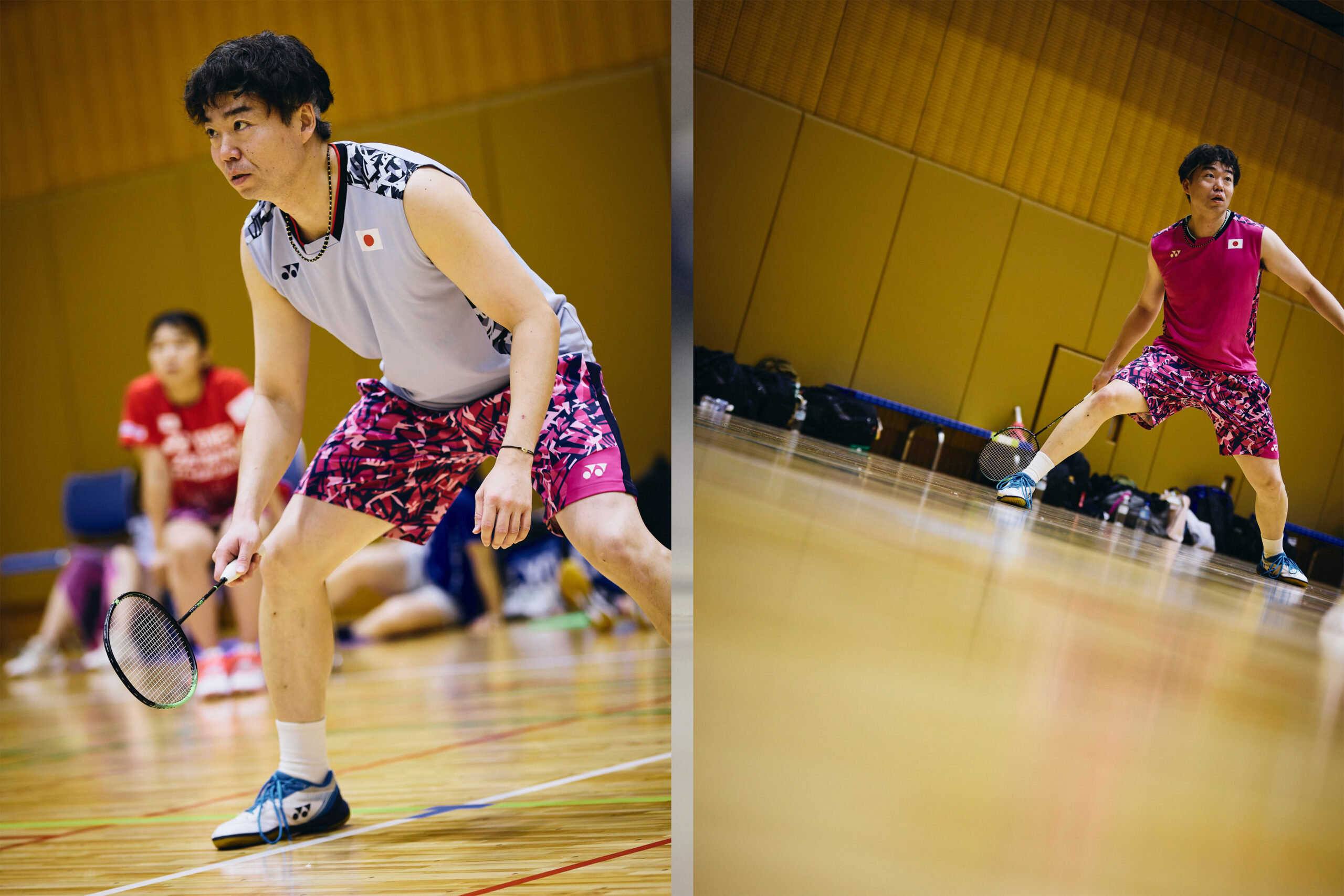
but decided to return to the sport after losing against my wife, Chihiro.
――So your wife, Chihiro Numakura was a strong athlete from back then?
Yes that’s right. She was the leader of the national team, and was very strong.
――You are paired with her at the Mixed Doubles, but what do you feel are the benefits?
We are always sharing the same space so we can practice a lot together. We can talk about feedbacks after the match compared to other people. That is the benefit for me.
――On the other hand, are there any disadvantages?
(Looking at his wife)… I think not.
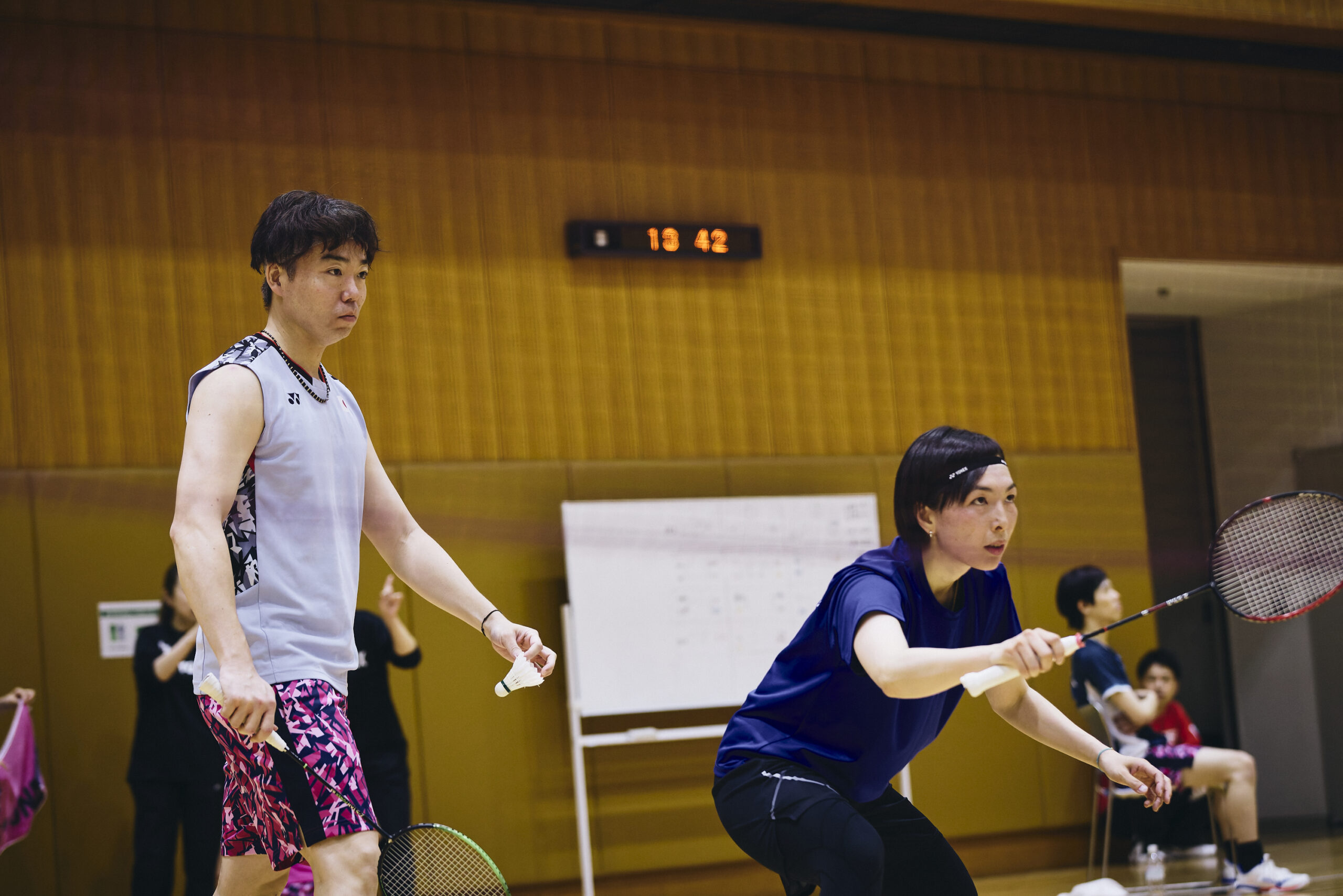
both aiming for the top of the world.
Mental aspects are “techniques”. The important thing is…
――Badminton is an elaborate sport, and I can imagine the impact of mental aspects on your playing. How do you face yourself daily and how do you fix your mental aspects?
I think mental aspects are “techniques”. Every humans are weak creatures. Fear is a normal emotion, so I think it is important to change that emotion to a positive one. But this needs some techniques. For example, when you feel pressure, I just change it to idea, “Everyone has high expectations for me and everyone is paying attention to me. It is such a nice feeling”.
――I think it is difficult to change to such idea for important matches, but is it easy to do?
I cannot do it if I don’t make it a habit to change to those ideas on a daily basis, so I tend to put pressure on myself from practice. For example, when I practice my serves, I imagine that I can achieve a medal if I get one more point while many people are watching at the Deaflympics, and I try to put myself in that kind of situation where I absolutely cannot fail.
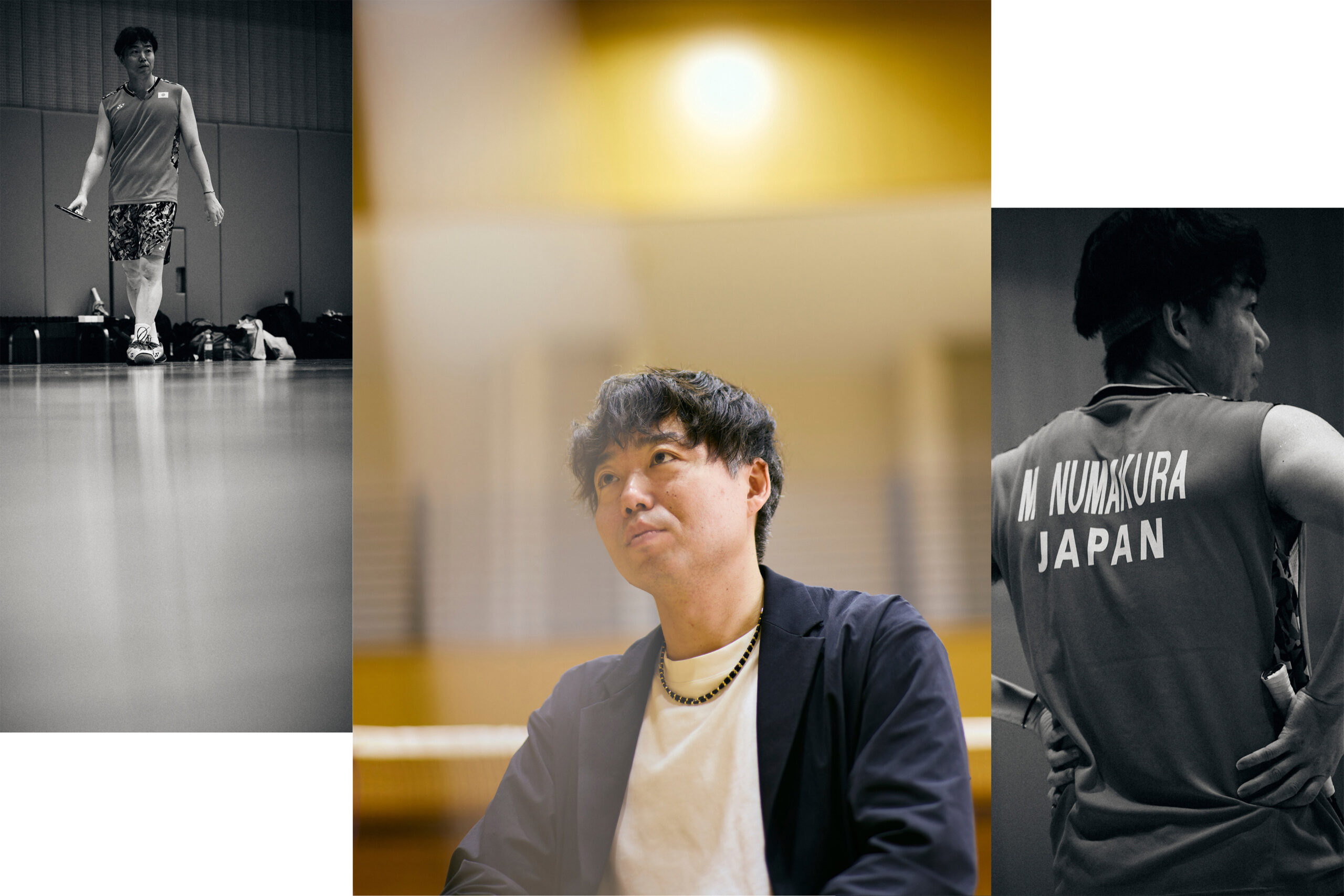
put pressure on myself during training
――What kind of experience have you gained until mentality have come to stand on the level of techniques?
I couldn’t achieve it right away. At one time, I asked my coach to say what I thought, which I couldn’t put it into words. That’s when it hit me right away. “Actually it’s not important to have the feeling to want to win or beat the competitor. Everyone has a desire to win, including the opponent. So the important thing is to think about how to win and get points.” Since then, after being aware of that, I feel now I have a stable mentality.
――Please tell us any turning points in your competition life including the reason.
I was working as a government employee. After winning bronze medal at the World Deaf Badminton Championships 2019, I really wanted to aim higher. That made me quit working as a government employee and determined to pursue badminton as a career. Winning a medal at the World Deaf Badminton Championships was a turning point for me.
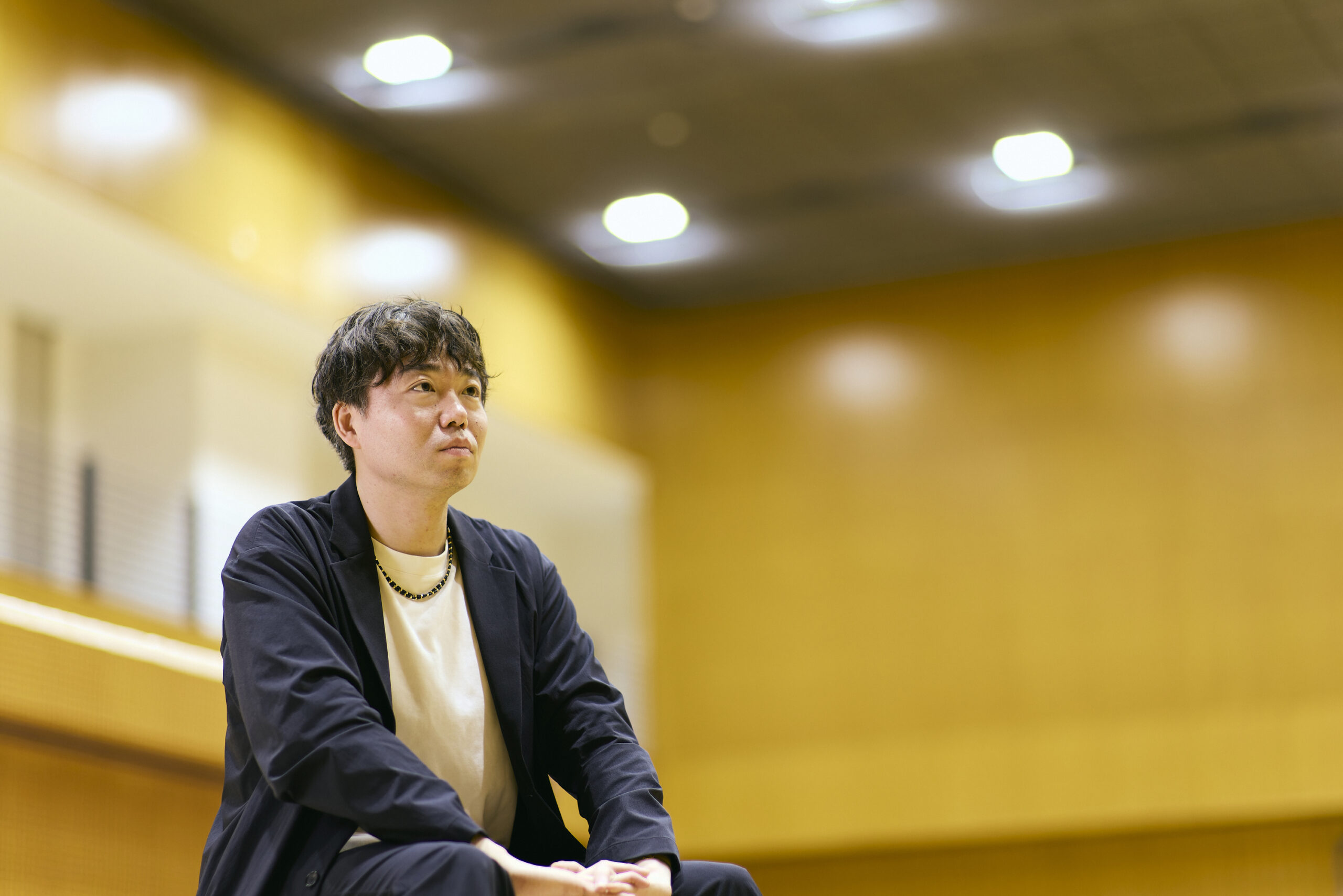
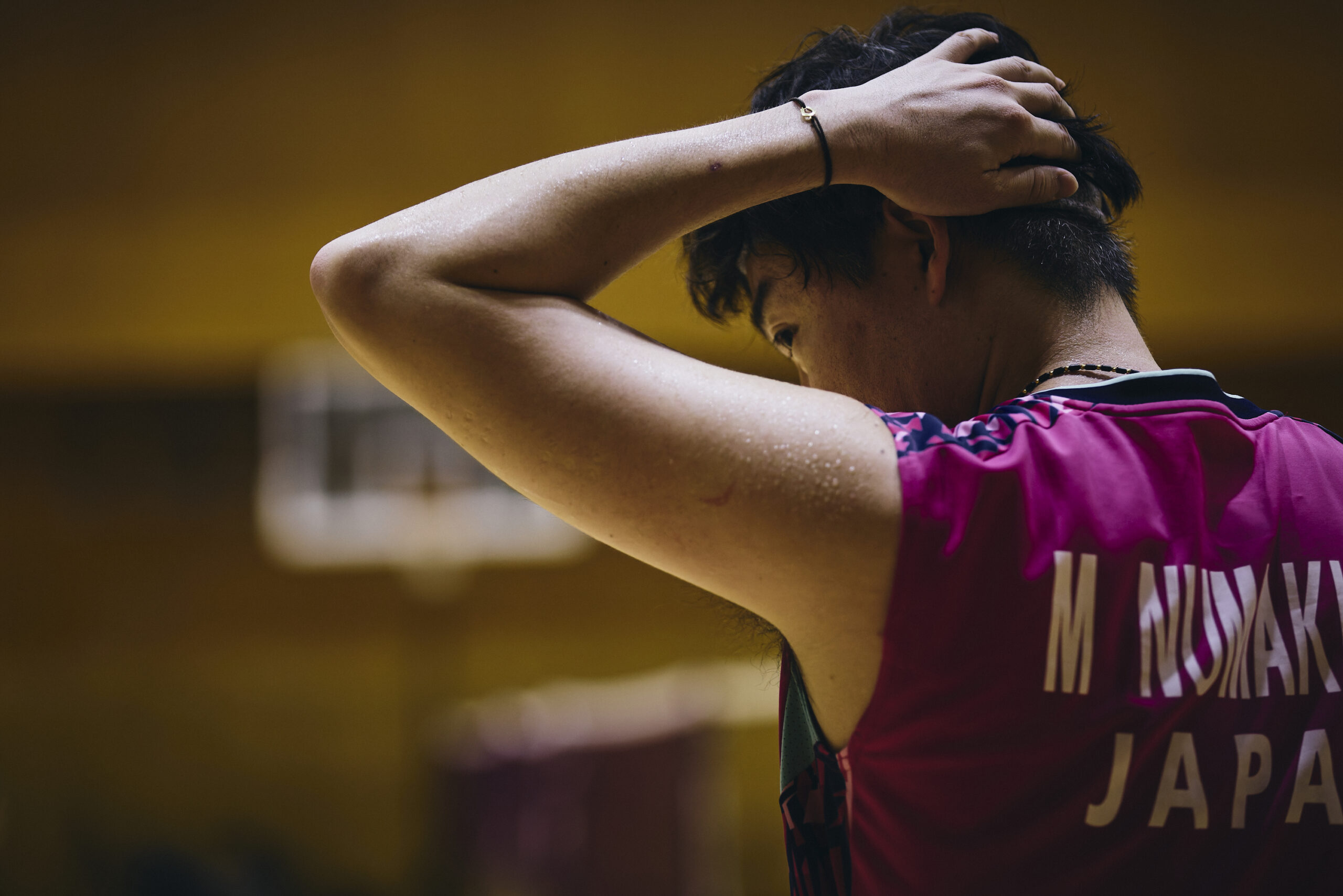
made me decide to concentrate on the sport
Deaflympics is a place for “Self-realization”
――You have participated in two Deaflympics in the past, 2017 and 2022. What does the Deaflympics mean for you?
I think it is a place for “Self-realization”. What I want achieve is to express myself as a role model for the deaf people. The answer may be a little vague… Also I think Deaflympics is a place where deaf children and their parents can have dreams.
――What do you want everyone to focus on your playing at the Tokyo 2025 Deaflympics?
I will turn the big 40 during the Deaflympics. I think age is like a uniform number in sports. Actual age has nothing to do with sports. I want to do tenacious and never-give-up play so I will not lose to young people.
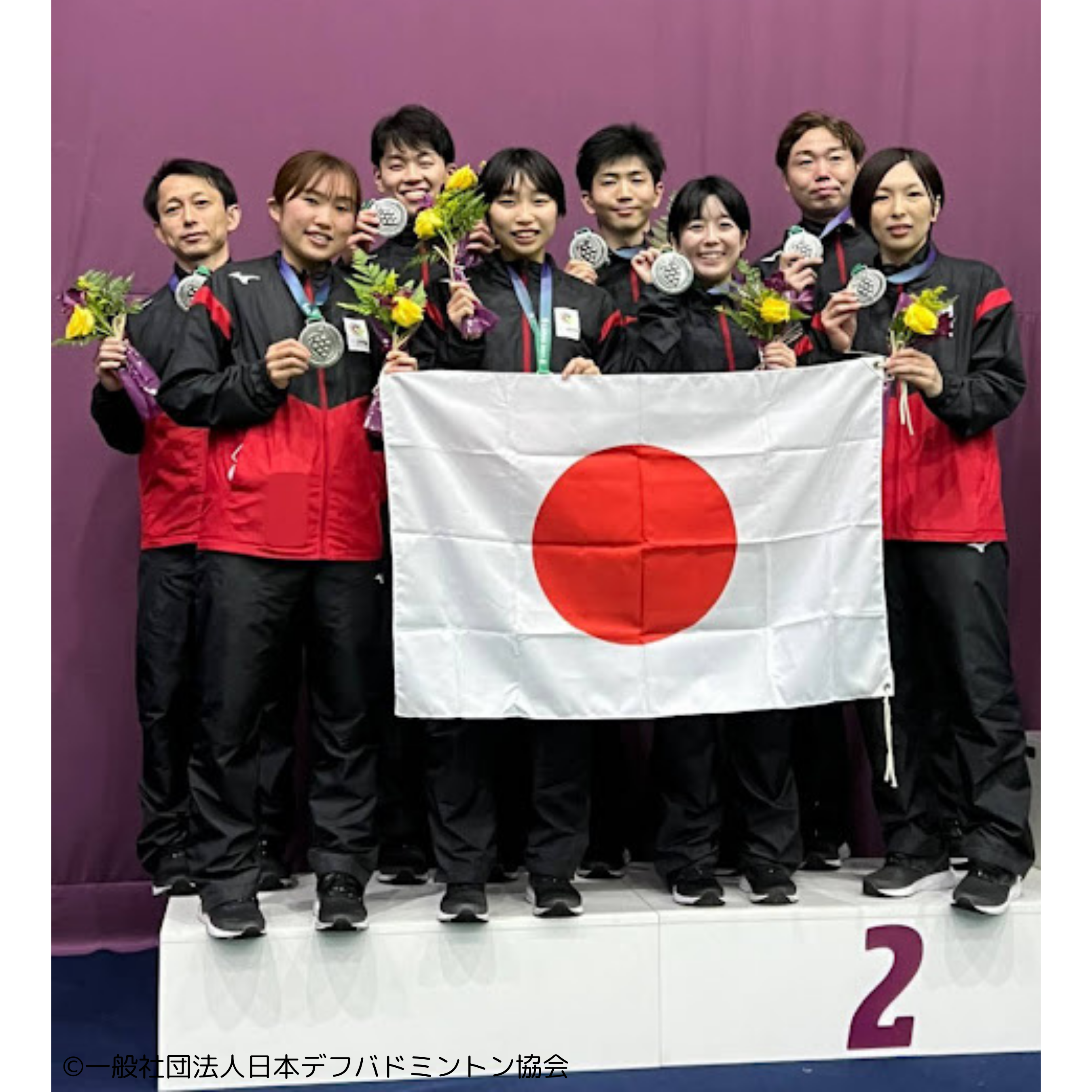
at the Caxias do Sul 2022
――Please tell us your goal for the Tokyo 2025 Deaflympics.
I have won silver and bronze medal at previous Deaflympics and Deaf World Championships and only the gold medal remains. I would like to repay everyone who has supported me by winning gold medal at all team competition, Mixed Doubles with my wife, and Men’s Doubles.
――What are you excited or look forward to the Tokyo 2025 Deaflympics?
I think Deaflympics will be an opportunity to spread understanding towards the deaf people. Some deaf people use sign language, while others cannot use sign language and speak verbally. There are various ways to communicate including writing down words, gestures, eye contacts. If the people who can hear understand this, I look forward to see a society where people can live comfortably regardless of whether they can hear or not after the Deaflympics.
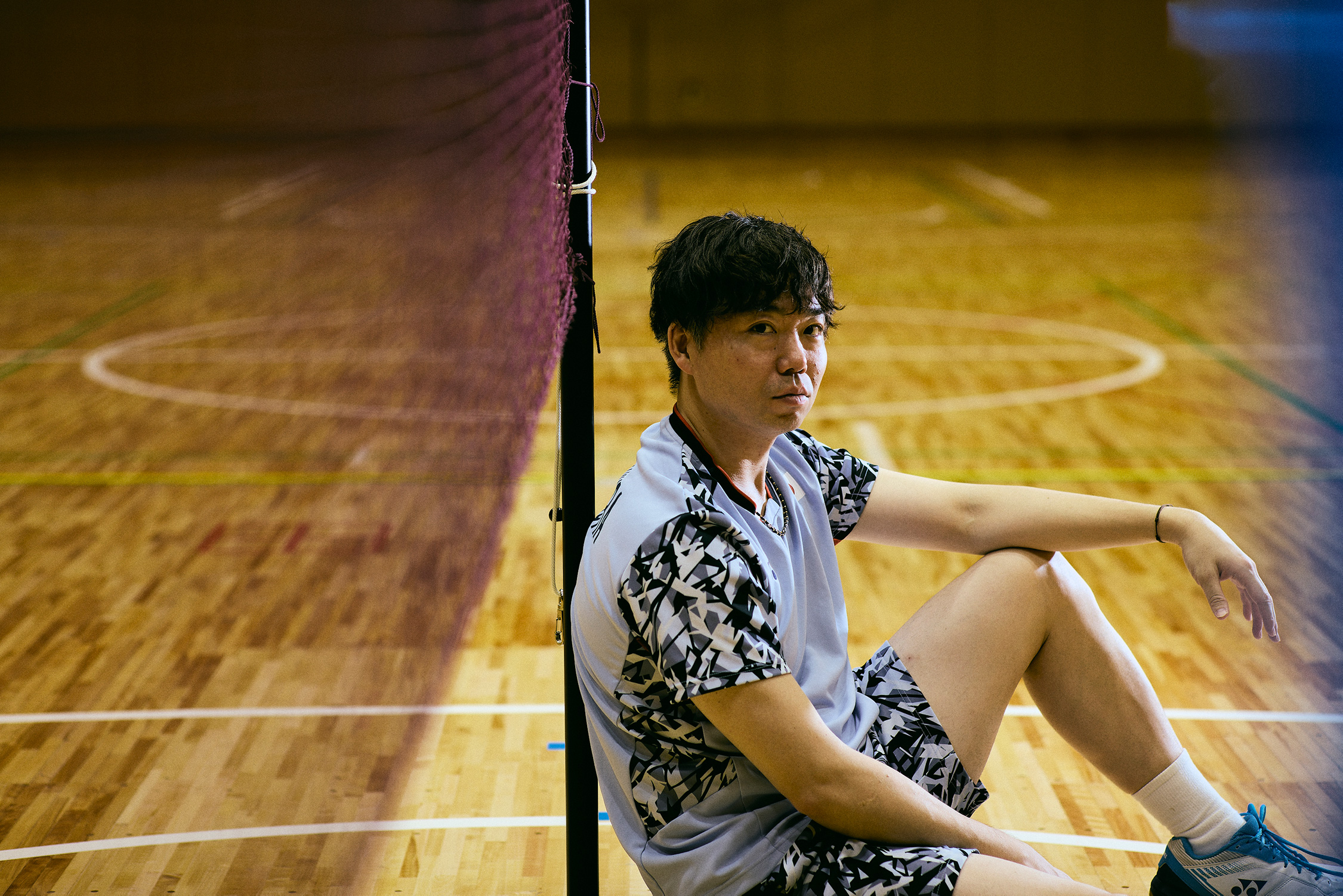
Eating bread after ramen?!
――Please tell us about your personal side from here. How do you spend your days when you don’t have practice?
I often go for a drive and eat some delicious food. I love eating ramen, and I also go far away to eat with my family. I live in Nagaoka city in Niigata prefecture, I drove to Sanjo city and ate ramen there. There are so many nice ramen shops there. I hope everyone will go and try it.
――What have you been into lately?
I love trying new bakeries. Ramen and bread are made from wheat, so there is a connection between them. There are so many nice bakeries in Niigata. By the way, Niigata ranks 2nd in terms of ramen consumption. We are competing with #1 Yamagata Prefecture right now. I am visiting ramen shops to rank first place.
――I understand the connection of wheat, but was there something that made you go to bakeries after ramen?
I didn’t feel full just eating ramen. A bowl is a bit too much but breads are just the right amount. It is like going to bakeries by car after eating ramen.
――That is amazing, combination of ramen and bread.
That’s right.
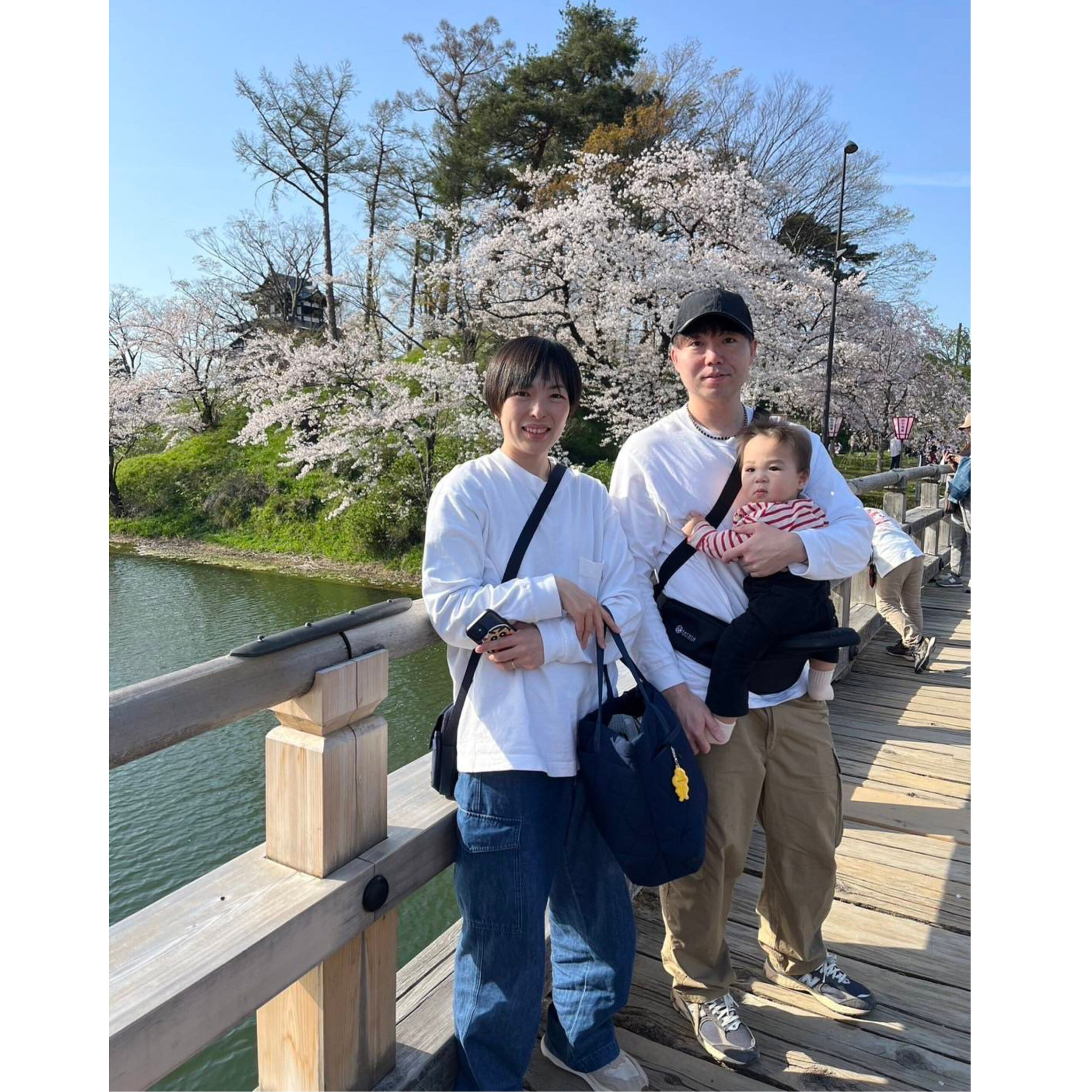
on my holidays while driving
*Courtesy of Masaaki Numakura
Repeatedly telling my son to play badminton…
――How did you meet your wife, Chihiro?
As I said earlier, I lost in a badminton match. Because of my frustration, we had more opportunities to practice together. After that, we spent more time together even outside practice by going out to eat and talk about many things. That’s how we naturally started our relationship.
――What part of her do you like?
I like that she is strong-minded. She is stubborn at times, but she isn’t afraid to be herself. I think that’s what makes her so appealing.
――You child was born last year?
Yes, my son is now 10 months old, and his name is “Ao”. It is the same name as the Japanese professional footballer Ao Tanaka. It may not come across clearly to people who can hear, but it is easy to pronounce “Ao”. We have decided to name him with two characters from the beginning, and we had several choices, but decided to name him “Ao” as it was easy to pronounce. Of course that’s not all.
――Do you want your child to play badminton as well?
My son is also deaf, so I have a feeling for him to win a medal in deaf badminton someday. But of course, I don’t want to force him. Whenever I am training with my wife, Ao is also with us , and I am repeatedly telling him to play badminton…
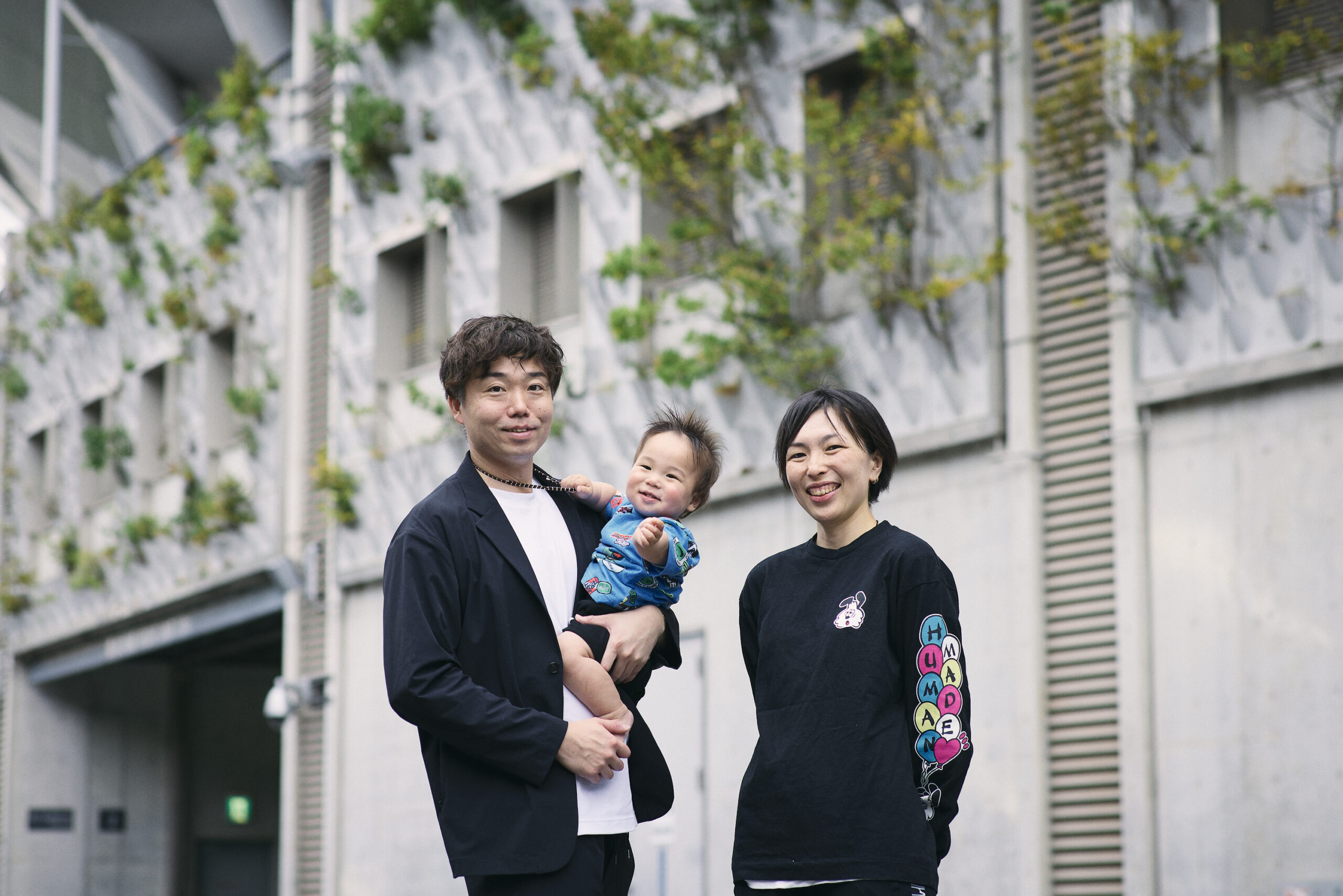
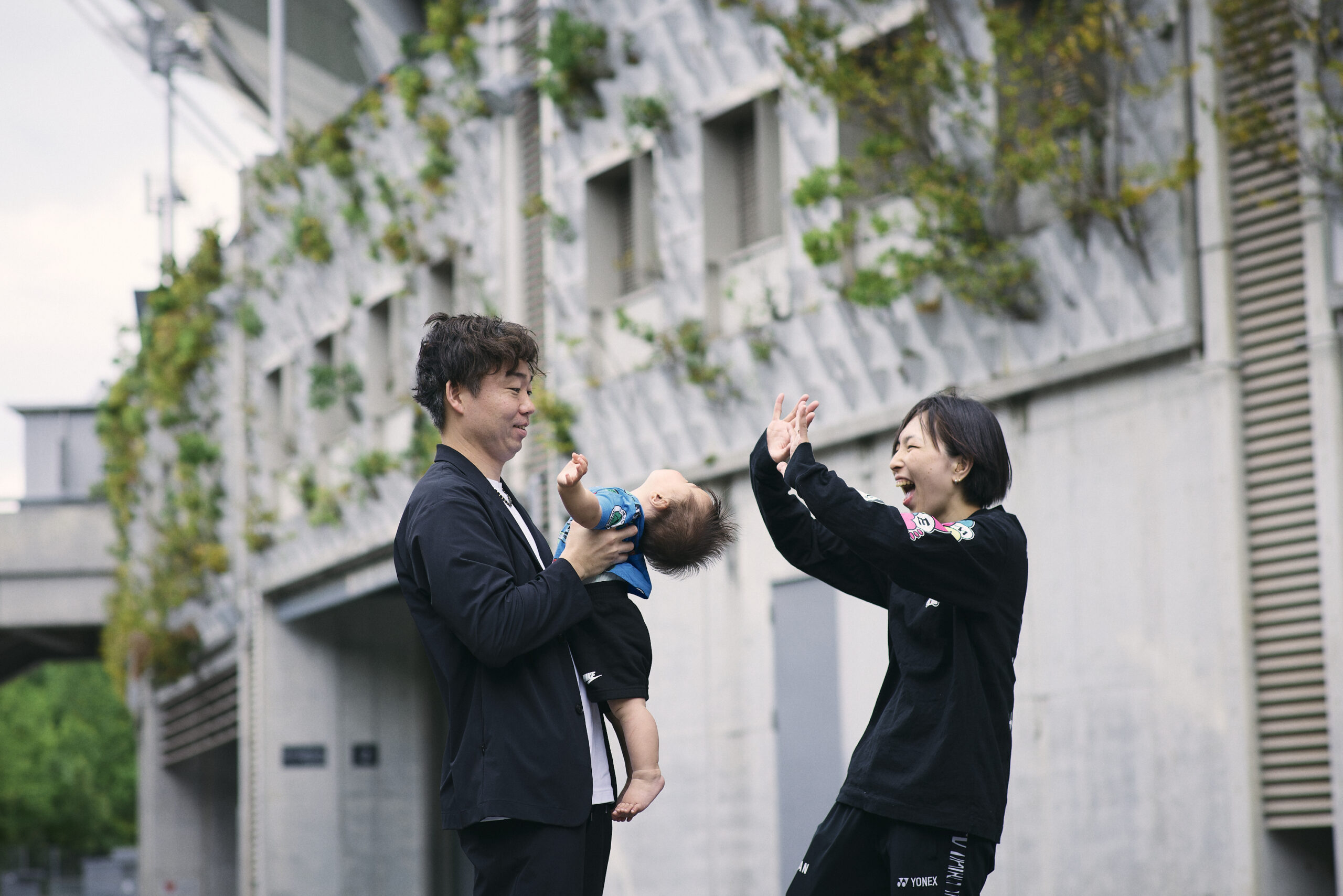
who was born last year to play badminton.
Inspired by my university classmate
――Is there anything you would like to do to raise awareness towards deaf sports?
I have more opportunities to talk about deaf sports nowadays at lectures and trial sessions, but I want to do more. I also taught badminton at a general junior high school as an outside coach in the past. I was communicating through a sign language interpreter, but this was when members saw sign language for the first time. There were several members who became interested in deaf sports from then.
――What was the reaction of junior high school students?
There were no reaction, in a good way, and they accepted it as a normal thing. If I have the opportunity and time, I would like to continue to provide teaching like this.
――Who would you recommend as a player for any sports other than yourself?
I have admired Deaf hammer thrower Masatoshi Morimoto. He is my classmate. I have gone camping with him and he loves sauna so much that he even has his own sauna tent. He’s an otaku (nerd) when it comes to outdoor activities. Masatoshi Morimoto was studying at Tsukuba University at that time and we met through a friend. Masatoshi Morimoto was a well-known athlete from university, and I felt him being far away. However, as I also became a Deaflympic athlete, we have more opportunities to meet each other, and I feel our friendship has deepened. I am often inspired by him.
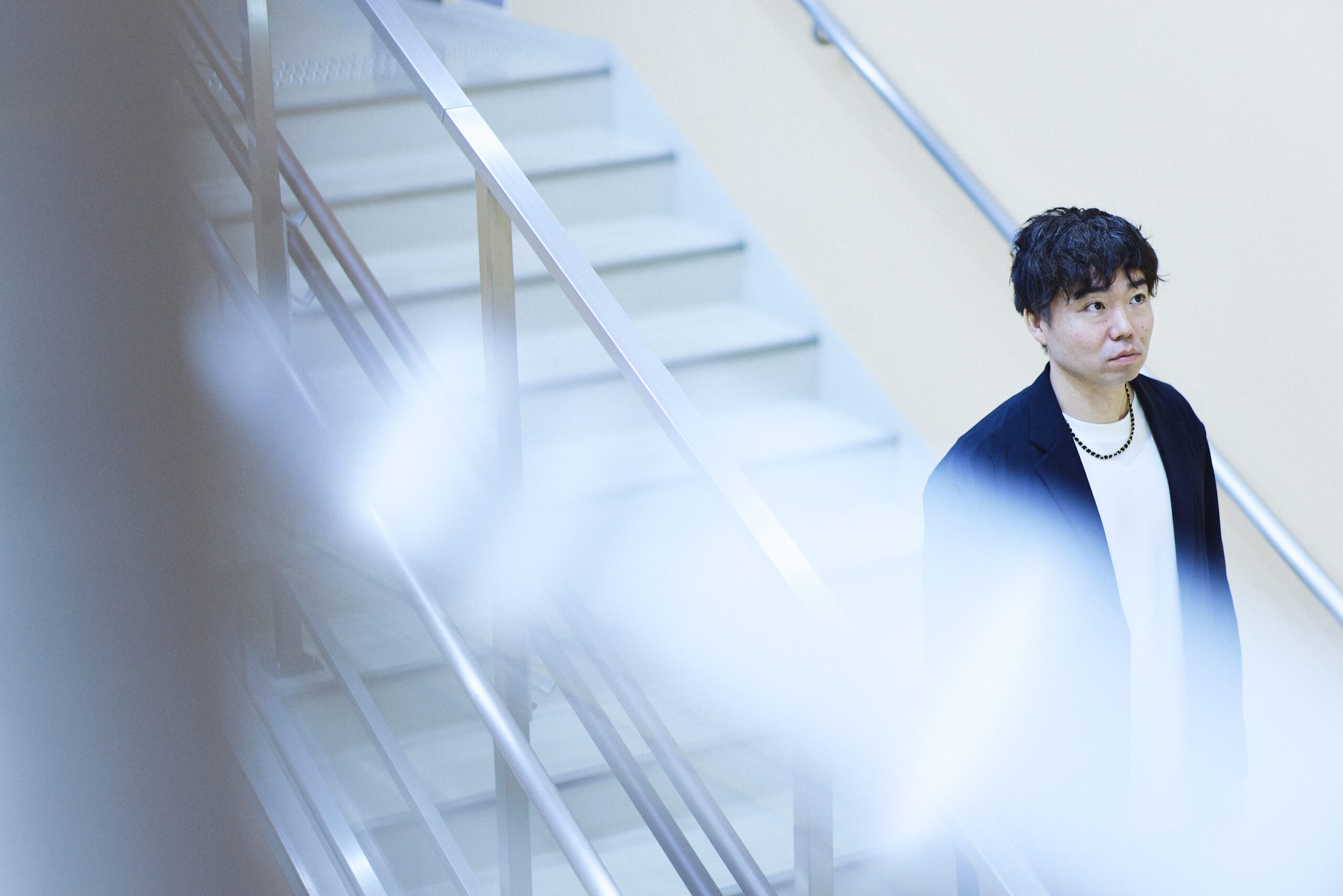
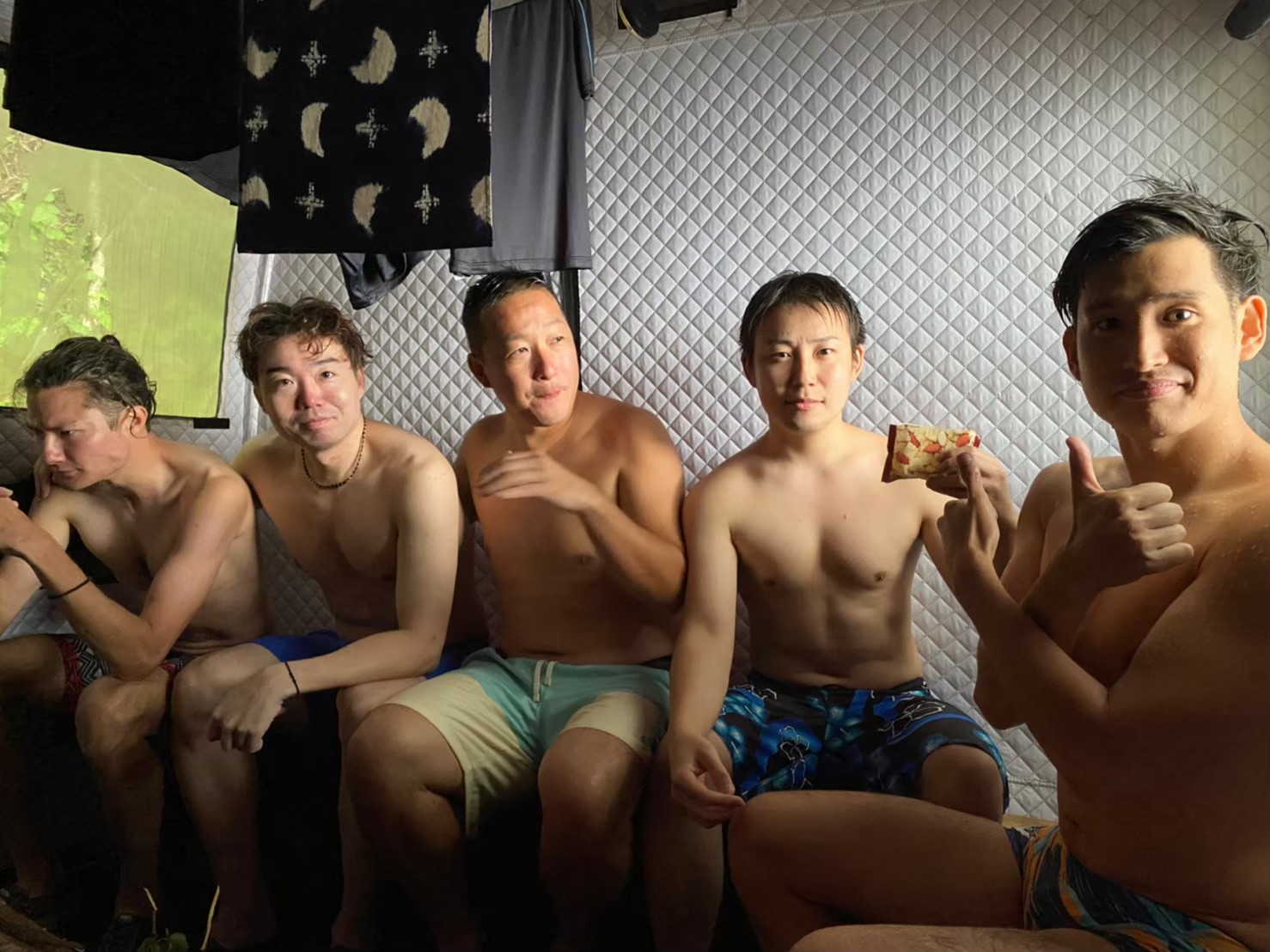
Often inspired by him as they both compete on the world stage.
*Courtesy of Masaaki Numakura
――Finally, do you have a message for our readers who are looking forward to the Tokyo 2025 Deaflympics?
I think Deaflympics is a “Communication festival”. As I mentioned earlier, some deaf people can use sign language while others cannot. There are many ways for people who can hear and people who cannot hear like having various ways in communicating with foreigners. The unique charm of the Deaflympics is being able to see this. I hope everyone will watch it and realize it. I will do my best to meet everyone’s expectations, so I appreciate your support.
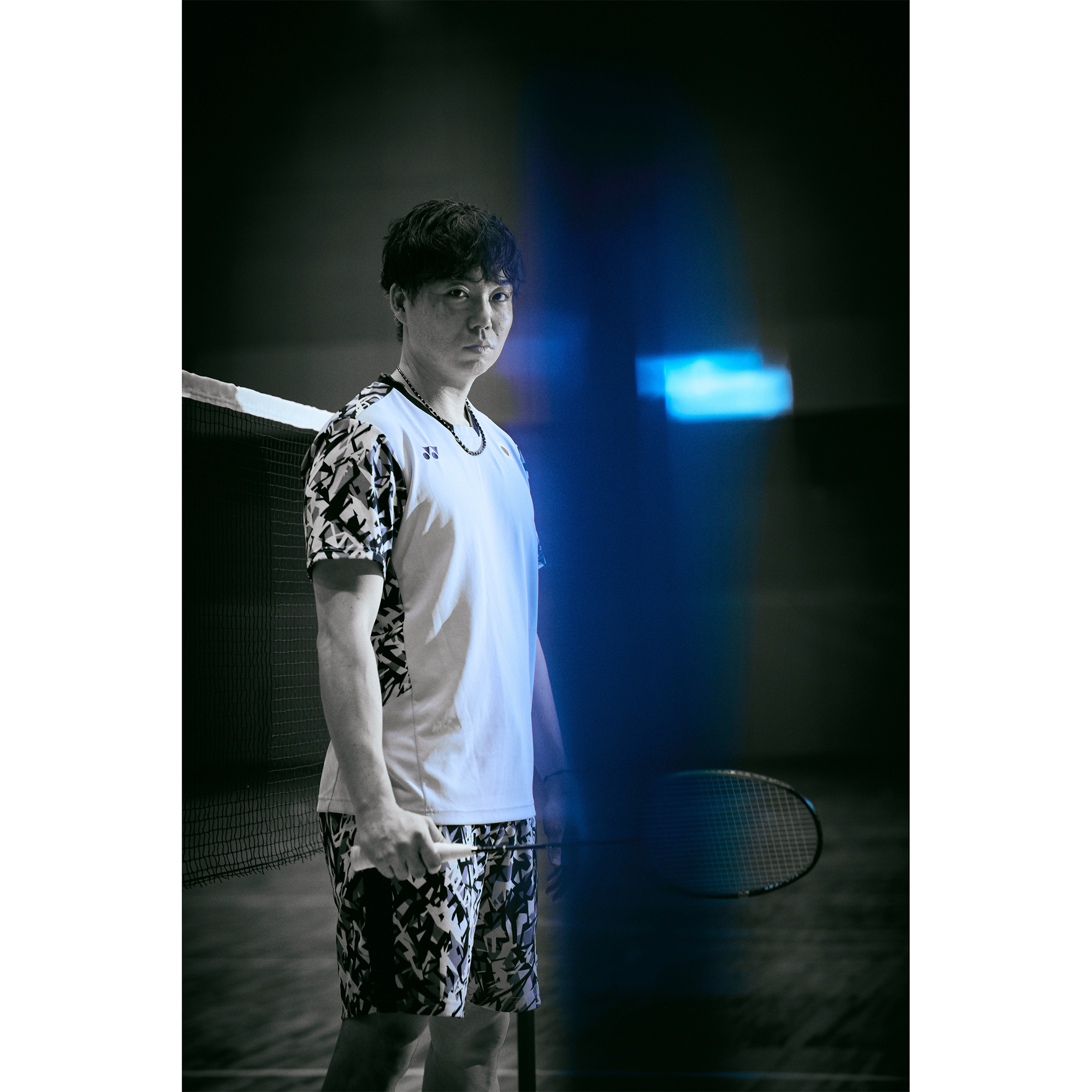
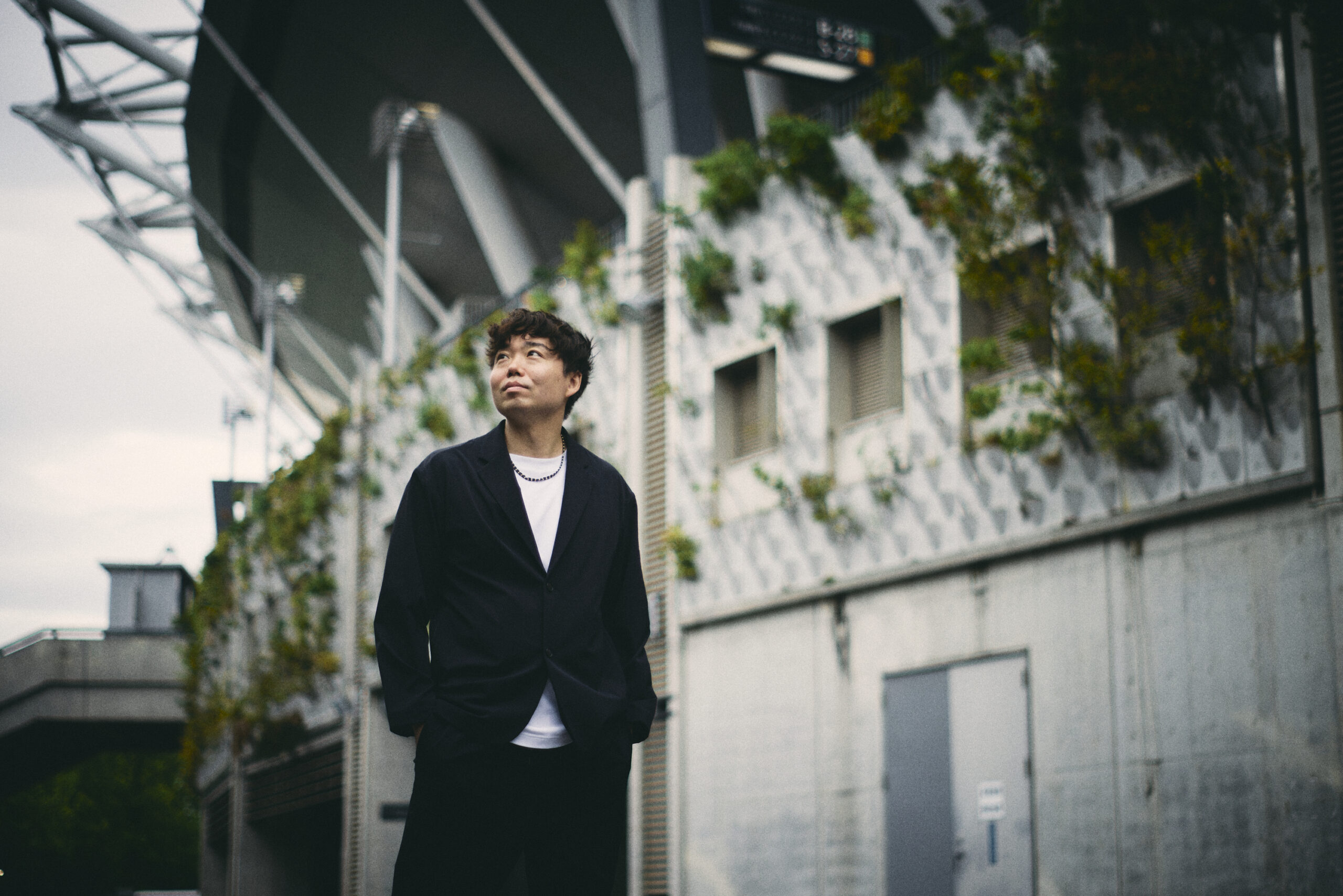
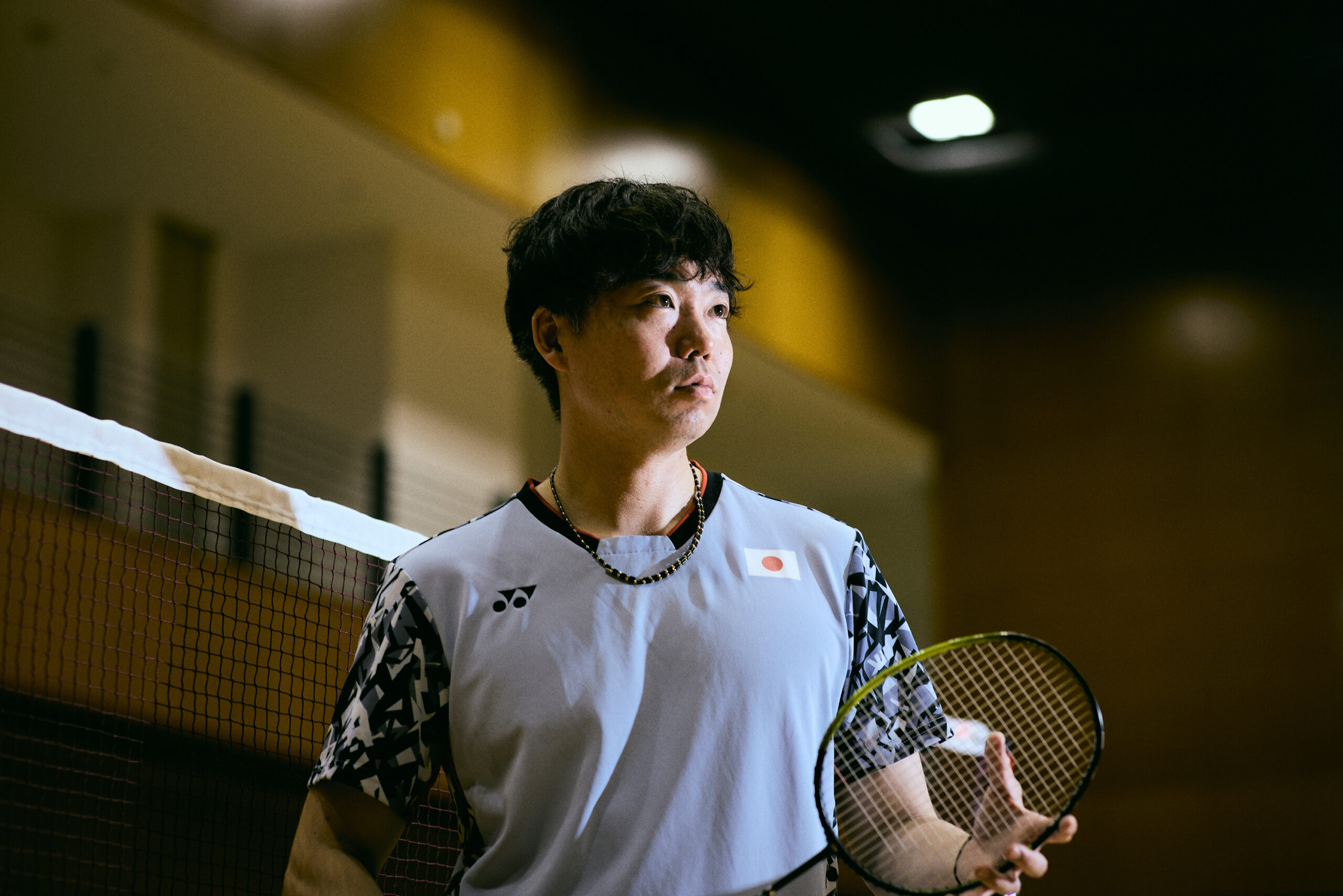
X:@mnumacchi
Instagram:mnumacchi
text by Moritaka Ohashi
photographs by Uta Mukuo

